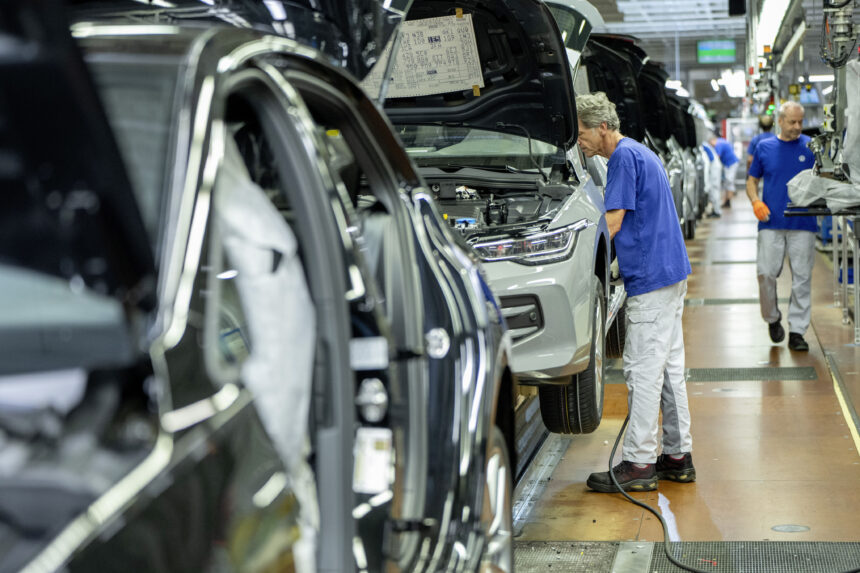Volkswagen has announced plans to reduce its workforce by 35,000 employees over the next five years as part of a comprehensive restructuring plan aimed at saving up to €4 billion (£3.4 billion). The decision comes after the car maker finalized an agreement with its works council, with the goal of streamlining operations, enhancing efficiency, and securing a competitive financial footing as it transitions towards electric vehicles.
The majority of the job cuts will be implemented through voluntary measures such as early retirement and severance packages in order to minimize social disruption. Volkswagen, which has around 120,000 employees in Germany, with half of them based at the main plant in Wolfsburg, will also focus on optimizing production efficiency and reallocating resources towards its electric vehicle strategy. This move will result in a reduction of 700,000 vehicles annually from its German manufacturing network.
While the historic former Karmann factory in Osnabrück and the Transparent Factory in Dresden will remain operational, they are planned to be repurposed to reduce costs. The Osnabrück plant is set to produce the T-Roc Cabriolet until 2026 under a contract, with efforts to secure jobs through collaboration with a defense company. On the other hand, the Dresden site, currently manufacturing ID 3 models, will cease vehicle production and transform into a Volkswagen-run technical operation.
The restructuring follows intense negotiations between Volkswagen management and worker representatives, spurred by CEO Oliver Blume’s calls for drastic measures to cut labor costs and improve competitiveness. Despite debates and criticisms surrounding the potential closure of Osnabrück and Dresden facilities, Volkswagen has decided to spare its Zwickau and Emden plants from the cost-cutting measures.
As Volkswagen navigates the transition to electric vehicles, it faces the challenge of balancing production of traditional models like the Golf, Tiguan, and Passat with newer electric offerings such as the ID 3, ID 4, and ID 7. The restructuring plan underscores the company’s commitment to adapting to changing market demands while ensuring long-term sustainability.





